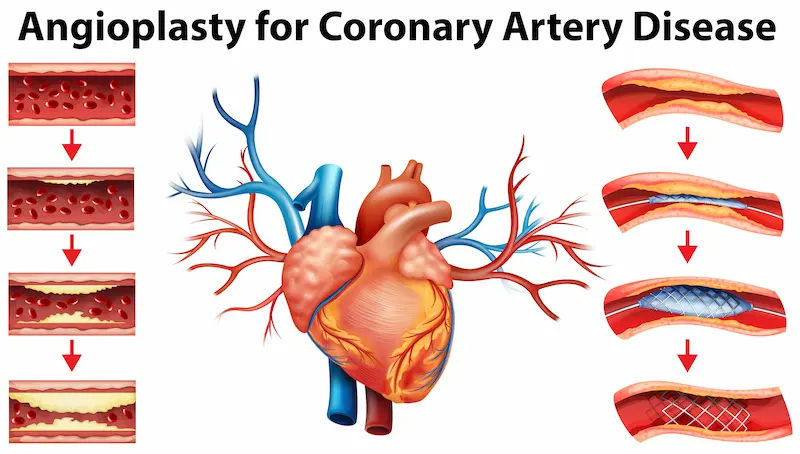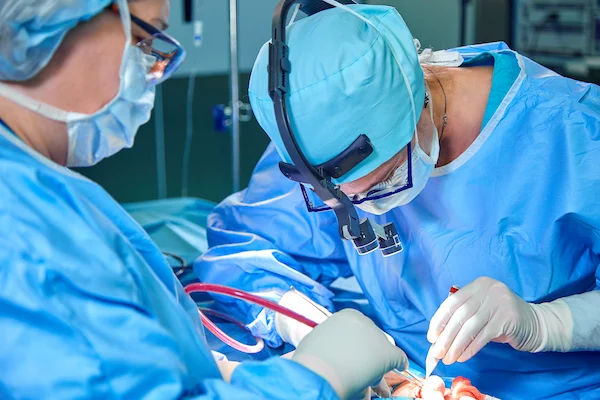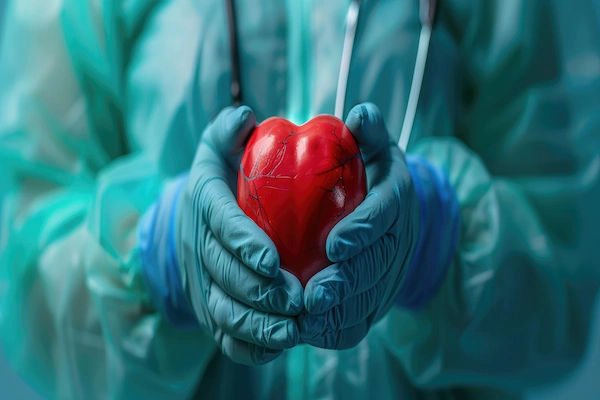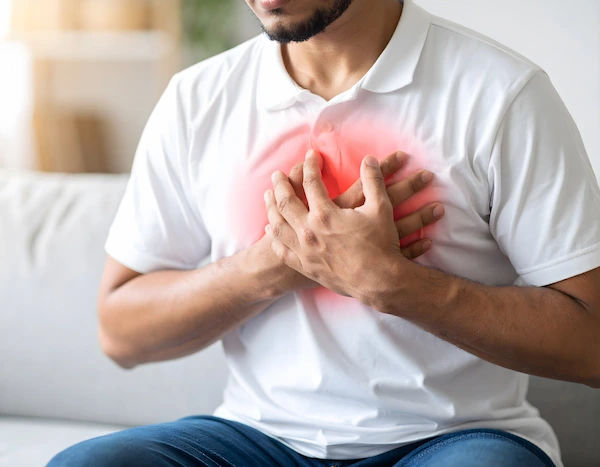- Male
- 25 Years
- 29/01/2025
Hey, a few days back I had a weird situation where I started feeling really anxious, my heart rate shot up to 150, and I had palpitations. I took Ciplar LA 20 and Dolo 650, and luckily my pulse eventually dropped back to 75. I'm trying to figure out if this was Supraventricular Tachycardia or just something normal? This happened to me once about three months ago, and it got better after taking Dolo 650 and some anxiety meds. I even had an ECG done in May, and that came out perfect. Do you think these two episodes could be Supraventricular Tachycardia, or are they just normal?
Answered by 1 Apollo Doctors
Based on your description, it is possible that you experienced episodes of Supraventricular tachycardia (SVT) given the sudden onset of palpitations, anxiety feeling, and rapid rise in pulse rate to 150 beats per minute. The fact that your symptoms improved after taking Ciplar LA 20 (propranolol) which is a beta-blocker commonly used to manage SVT supports this possibility. Additionally, the normal ECG results in May suggest that there may not be any underlying structural heart issues causing the SVT. For the management of SVT episodes, you can continue to use Ciplar LA 20 as needed to help control your heart rate. It is important to follow up with a cardiologist for further evaluation and to discuss long-term management options, such as potential medication adjustments or other interventions like ablation therapy. In the meantime, it is advisable to avoid triggers that may precipitate SVT episodes, such as caffeine, stress, or certain medications. Keeping a record of your symptoms and discussing them with your healthcare provider can also help in monitoring your condition effectively.
Dr. Anshul Suggests...
Consult a Cardiologist
Answered 04/07/2025
0
0


Ask Apollo
AI powered Health Chatbot
-
Possible Causes
a. The symptoms you describe could be indicative of Supraventricular Tachycardia (SVT), especially with a heart rate of 150 bpm.
b. Anxiety can also cause similar symptoms, but SVT should be considered given the heart rate. -
Recommendations
a. Consult a cardiologist for further evaluation, possibly including a Holter monitor to capture any irregular heart rhythms.
b. Avoid self-medicating without professional guidance, especially with heart-related symptoms. -
Immediate Actions
a. If symptoms recur, seek medical attention promptly.
b. Keep a record of episodes, including triggers and duration, to assist your healthcare provider.
Recommended next steps
Consult a Cardiologist or Take a ONCO MONITOR 90+ GENES (LB & MRD) Test
Answered 20/08/2025
0
0
More Cardiology Health Queries
View allI'm dealing with this chest pain for the last couple of months, and I've already checked in with a gastric specialist and taken some gas meds. Even had an ECG done and that seemed fine. But I'm still feeling this pain when I move around or lift stuff. Could this be a muscle issue in my chest? Should I be worried, and is there something specific I should be taking to help with it?
Based on your description, it is possible that your chest pain is indeed related to chest muscle pain. To help relieve the pain, you can try taking over-the-counter pain relievers such as acetaminophen or ibuprofen. Additionally, you can use a muscle relaxant such as methocarbamol to help relax the chest muscles and alleviate the pain. It is also important to rest the affected area and avoid activities that worsen the pain. If the pain persists or worsens, it is advisable to follow up with your healthcare provider for further evaluation and management.
Answered by 1 Apollo Doctors
I'm dealing with some chest pain and recently found out my blood pressure's been high at 14090 for the past two weeks, plus I've got high cholesterol. My doctor prescribed Rosuvas 10mg for the cholesterol but didn't give me anything for the blood pressure. Is it okay if I take EMBETA XR 50 along with Rosuvas just for a few days to manage the BP?
It is not advisable to take EMBETA XR 50 (Metoprolol) without consulting your doctor, especially since you have high blood pressure. Metoprolol is a beta-blocker that helps lower blood pressure and heart rate. It is important to have your blood pressure monitored regularly while taking this medication. If your doctor did not prescribe a blood pressure medication initially, it is best to follow up with them to discuss the need for adding EMBETA XR 50 to your current treatment plan.
Answered by 1 Apollo Doctors
I'm feeling like there's something stuck in my throat. I've got this chest pain right in the middle, and it feels tight. I even feel like I'm suffocating and like I can't breathe properly, like something bad might happen. Why could this be happening?
Thats unusual,visit General Physician for appropriate approach.and maintain balanced diet and healthy lifestyle
Answered by 1 Apollo Doctors
Disclaimer: Answers on Apollo 247 are not intended to replace your doctor advice. Always seek help of a professional doctor in case of an medical emergency or ailment.





